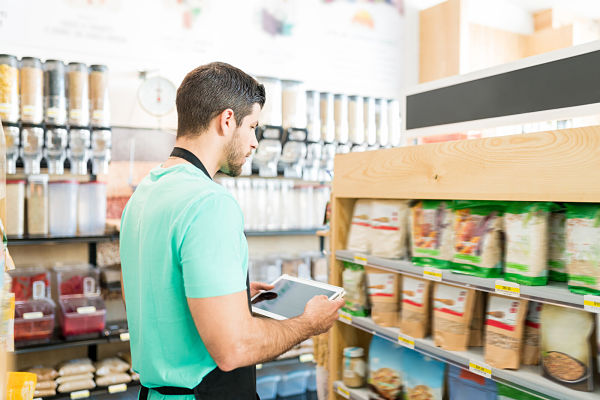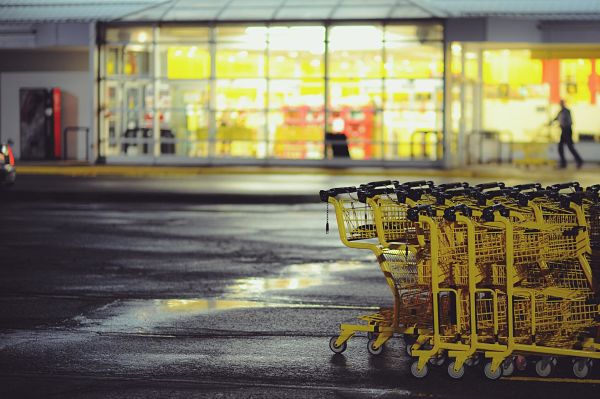When it comes to regulatory compliance and solid business practice, today’s convenience store operators have more to keep track of than ever. First, there are the brand standards you need each store to establish in order to develop a consistently excellent customer experience across your chain. Then, there are all the food safety regulations that have to be followed as a necessary part of the sector’s expanding food preparation activities. Finally, there are all the stringent public safety and sanitation guidelines that any public business must heed in order to bolster customers’ trust and build a reputation for security and safety.
Few employees have the experience and skill set to flawlessly execute all these detailed actions without prompts. That’s why the convenience store industry is turning to digital forms and checklists to standardize operational processes throughout all shifts at all stores.
What checklists do you need?
Virtually every job responsibility inside your stores, from the moment an employee arrives to open the store through the moment the closing employee locks the door, can be covered by operational checklists.
Let’s start with the basics – the first two checklists you’ll need are for daily store opening and closing procedures.
Beyond opening and closing your C-Stores, other must-have checklists include:
Cleaning and sanitation:
- Store cleaning and safety: emptying trash, sanitizing surfaces, sweeping and mopping floors, cleaning windows, etc.
- Bathroom checks
- Equipment sanitation and regular maintenance
- Outdoor upkeep: trash removal, power washing schedule for parking areas and gas pump areas, gas pump cleaning and sanitation, preventative maintenance
Food preparation and safety:
- Proper employee hygiene
- Food handling and preparation practices
- Food storage
- Kitchen equipment sanitation
- Temp checks for refrigerators, freezers, coolers, ovens, heating tables, etc.
- Kitchen closing procedures
Operational service standards:
- Brand standards for employee appearance and customer service
- Merchandise restock
- POS system maintenance
- Promotional and merchandising campaigns
Premises safety:
Lightbulbs are all working, walkways are clear and safe, equipment is whole and functional, storage areas are secure, employees’ line of sight into parking area is clear, surveillance cameras work properly, etc.
It seems like a lot to keep up with because it is a lot, which is the point. When you provide daily checklists to your management team, you are empowering them to:
- Prioritize tasks for employees to carry out
- Minimize waste while decreasing expenses
- Standardize operational processes and customer service between stores
- Document regulatory compliance
Today we can take the next step beyond paper-based documentation. What if all your c-stores’ checklists, forms, and instructional materials were standardized and available to every employee through a digital, mobile app?
Benefits of this best practice would include:
- Ability to update any checklist or form once, and it immediately rolls out to all users in real time
- Fewer hours spent on administrative duties, which lowers labor costs
- Increased accountability for employees
- Full transparency of operational data from every store in real time
- Activities can be monitored remotely, no matter where managers are
- Quick correction of subpar practices, along with instructions on how to perform the task
- Increased customer satisfaction
- Ability to base business decisions on real, objective data
- Reducing the risk of regulatory fines or harm to brand reputation
With a digital checklist solution like MeazureUp, you are covered on everything listed above, plus you can customize it to fit your own operations and procedures.
We Do the Heavy Lifting for You
The idea of building all of these checklists and forms is daunting; that’s why we work with your team to build all your chain’s operational information into the app, and customize as we go. Then we teach you to easily make small updates after the original build is complete.
How to build great checklists
Let’s borrow a page from data collection best practices. Generally, the most effective forms and checklists have two important characteristics:
- Validity – does your form collect exactly the information you need it to?
- Reliability – does your form collect the same information every time, no matter who fills it out?
To build checklists with these characteristics, you must first understand exactly what the purpose of the form is, what kind of data you need to collect, and what actions you need to document through it. A bathroom check form is different than a food storage checklist or a gas pump maintenance schedule. Mentally walk through each procedure and each action that must be documented. Consider where errors are currently made, how these actions dovetail with or build upon other actions, etc.
Because these forms are digital, decisions are made to proficiently record the data. For instance, do you need a “yes/no” checkbox, with a response required? How should numbers be rounded or presented? Should an illustrative photo be attached in order to eliminate the need for long, involved explanations? How often should this checklist be completed? The goal is to create checklists that are quick and easy for any employee to fill out because they become essentially foolproof.
Once the hard work of programming is done and your employees begin using the app, full and complete data begins to roll in. It’s saved automatically with employee names, dates and times, and locations, and uploaded in real-time to the app’s dashboard. Anyone on your team can see at any time what the current status is in any store – no matter where they’re checking from – and take action accordingly.
Since your data is now saved to the cloud, it’s quick and easy to access to generate reports or compliance docs, even run our built-in data analytics to uncover trends and opportunities.
Checklists Are Simple with MeazureUp
Running a convenience store has become a complex operation, and it’s the job of your entire team to attend to the details that make it all work and develop a consistent customer experience. With MeazureUp, you can ensure the right steps are being taken at the right time, every time, in every store.
For more information on how MeazureUp makes your c-store forms and checklists the most effective they can be, visit https://meazureup.com/grocery-convenience-store-checklist/.



